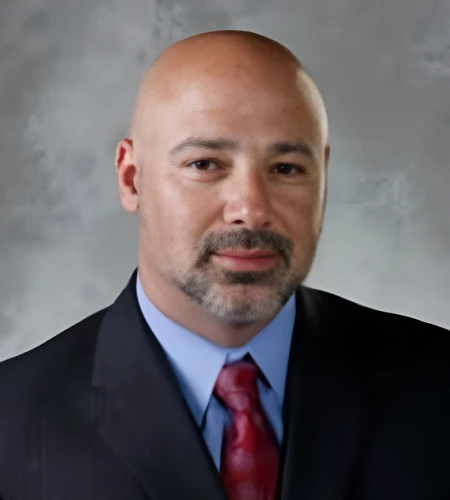A California rideshare sexual assault attorney helps protect survivors’ rights when rideshare companies fail to provide safe transportation. While promoted as convenient and innovative, these platforms have also created conditions that allow predators to target passengers.
Survivors need lawyers who understand the structure of billion-dollar rideshare companies and know how to challenge their defenses against accountability. Skilled counsel can address issues involving tech industry practices, platform liability, and corporate insurance strategies that often prioritize company profits instead of passenger safety.
Courts are continuing to examine corporate responsibility, the duty of care owed to riders, and how algorithmic decision-making affects safety. Survivors without strong legal representation are often at a disadvantage against corporate legal teams focused on limiting liability.
If you were sexually assaulted by a rideshare driver in California, contact Horowitz Law at (954) 641-2100 for a confidential consultation and dedicated advocacy to hold rideshare companies accountable.
Table of Contents
- Key Takeaways for California Rideshare Sexual Assault Cases
- How Horowitz Law Holds Rideshare Companies Accountable
- Past Case Results
- California Laws Governing Rideshare Sexual Assault Cases
- How Technology Platforms Contribute to Rideshare Sexual Assault
- Hear From Our Clients
- Common Defense Strategies Used by Rideshare Companies
- Steps to Building a Strong California Rideshare Sexual Assault Case
- Damages and Recovery in California Rideshare Sexual Assault Lawsuits
- FAQs for California Rideshare Sexual Assault Attorneys
- Rideshare Sexual Assault Resources
- Challenge Corporate Negligence and Push for Rideshare Reform
Key Takeaways for California Rideshare Sexual Assault Cases
- A California rideshare sexual assault attorney helps survivors navigate complex corporate liability cases involving technology companies that facilitate dangerous encounters while claiming limited responsibility for passenger safety.
- Rideshare platforms face potential liability under multiple legal theories when their business practices, screening failures, or algorithmic systems enable sexual assault by drivers using their services.
- California’s Transportation Network Company (TNC) regulations require rideshare platforms to meet safety standards. Though passengers cannot sue directly under these rules, violations can be used as evidence of negligence to hold companies accountable.
- Survivors may pursue comprehensive compensation including medical expenses, alternative transportation costs, lost wages, and damages for the unique harm caused when assaults are enabled by trusted rideshare platforms.
- Representing survivors in these cases requires expertise in tech industry practices, corporate liability law, and the legal defenses rideshare companies use to avoid accountability.
How Horowitz Law Holds Rideshare Companies Accountable

At Horowitz Law, we have developed litigation strategies designed to counter the sophisticated defenses rideshare companies use to avoid responsibility when their drivers commit sexual assault. Because our attorneys focus solely on sexual abuse cases, we understand how these corporations structure their businesses to protect profits while minimizing accountability.
Lawsuits and public reports show that many rideshare-related assaults are linked to broader corporate failures in driver screening, supervision, and safety protocols. Our California attorneys challenge claims of platform immunity and demonstrate the active role these companies play in creating conditions that allow assaults to occur.
We represent survivors across California, including Los Angeles, San Francisco, and San Diego. Our approach combines aggressive pursuit of corporate accountability with compassionate advocacy for survivors. We provide confidential representation on a contingency fee basis, ensuring that survivors can seek justice without financial obstacles.
Past Case Results
California Laws Governing Rideshare Sexual Assault Cases

California has set up detailed laws and rules for rideshare companies, which are legally called Transportation Network Companies (TNCs). These rules create specific responsibilities that lawyers often use to hold companies accountable for keeping passengers safe.
Under California Public Utilities Code Section 5431, rideshare companies must follow certain safety standards designed to protect passengers. These legal requirements go beyond how companies usually describe themselves as simply connecting independent drivers with riders. While these rules do not give passengers a direct right to sue on their own, breaking them can serve as strong evidence in negligence cases.
An experienced California rideshare sexual assault attorney knows how to apply these regulations to prove company liability when a rideshare platform fails to meet its legal duties to protect passengers.
Corporate Liability in California Rideshare Sexual Assault Claims
California rideshare sexual assault attorney cases frequently involve multiple legal theories that address how technology companies' business practices contribute to sexual assault risks despite their claims of limited responsibility. These liability frameworks recognize that rideshare platforms control transportation services through algorithms, driver management, and passenger interaction systems.
Corporate liability may be alleged through negligent screening practices, failure to implement reasonable safety measures, potential regulatory violations, or business models that increase known risks without adequate protection. California Civil Code Section 1714 establishes general negligence standards that apply to corporate defendants who create unreasonable risks of harm to others.
Successful rideshare sexual assault cases often show that the company knew about the risks but still put profits ahead of passenger safety by using weak screening, providing little oversight, and adding safety features that were more for marketing than real protection.
How Technology Platforms Contribute to Rideshare Sexual Assault

A California rideshare sexual assault attorney frequently confronts corporate defendants whose sophisticated business models create assault opportunities while implementing legal structures designed to minimize accountability.
Rideshare companies develop algorithmic systems, driver management practices, and passenger interaction protocols that actively facilitate encounters between strangers while claiming no responsibility for the safety consequences.
The technology industry's approach to rideshare operations involves creating corporate structures that maximize revenue from transportation services while shifting liability risks to both drivers and passengers.
These companies employ teams of attorneys, policy experts, and public relations professionals whose main goal is to avoid accountability for the predictable consequences of their business models.
Corporate Practices That Enable Rideshare Driver Sexual Assault
Rideshare companies have adopted corporate structures and driver classifications that limit their legal responsibility, while continuing to profit from transportation services.
A California rideshare sexual assault attorney identifies systematic corporate policies that prioritize liability avoidance over passenger protection. These corporate accountability failures typically involve deliberate choices that favor profits over safety:
- Rideshare companies implement background screening procedures designed to maximize driver approval rates rather than to screen out applicants with histories of violence or sexual misconduct.
- Platforms develop algorithmic matching systems that prioritize ride efficiency and driver utilization over passenger safety factors like location risk or driver history.
- Customer service and incident response focus more on shielding the company from liability than supporting survivors or fully investigating safety failures.
- Safety features often serve more as marketing tools than as effective protective measures, creating a false sense of security.
- Rideshare platforms maintain corporate structures and driver classification systems specifically designed to avoid legal responsibility for driver misconduct while continuing to profit from transportation services.
Corporate practices that prioritize legal immunity over passenger safety may constitute negligence when companies had knowledge of risks and failed to take reasonable protective measures, despite having the resources to do so.
A California rideshare sexual assault attorney uses these corporate choices to establish liability theories that hold technology companies accountable for their role in enabling dangerous encounters.
Hear From Our Clients
Common Defense Strategies Used by Rideshare Companies

Rideshare companies use sophisticated legal strategies to avoid liability for sexual assaults committed by their drivers, while continuing to profit from services that create these risks. A California rideshare sexual assault attorney must anticipate and counter tactics such as independent contractor arguments, technology platform immunity claims, and victim-blaming strategies that shift responsibility away from the corporation.
These companies rely on large legal teams skilled in technology law, corporate defense, and insurance disputes. Their focus is on limiting settlements and preventing judgments that might encourage additional survivor lawsuits. Defense strategies often focus on limiting liability exposure while discouraging future lawsuits.
Recognizing these defense patterns helps survivors and their attorneys prepare for the aggressive tactics rideshare corporations use to protect profits while avoiding accountability for safety failures.
Steps to Building a Strong California Rideshare Sexual Assault Case

Pursuing accountability against rideshare corporations requires case development that addresses both individual driver misconduct and corporate negligence. A California rideshare sexual assault attorney gathers platform data, corporate policies, driver records, and prior incident histories to show how business practices prioritize profits over passenger safety.
The discovery process often involves disputes over corporate documents, driver employment records, algorithmic data, and incident response protocols. Companies frequently attempt to block disclosure with confidentiality claims and trade secret arguments.
Strong cases typically include expert testimony on industry safety standards, corporate negligence, and protective measures that companies chose not to implement.
Settlement negotiations may involve both financial recovery and policy changes aimed at improving passenger safety. However, rideshare companies often resist reforms that might affect profitability or operations.
Damages and Recovery in California Rideshare Sexual Assault Lawsuits

Sexual assault by rideshare drivers causes unique harm because of the transportation setting and corporate facilitation. Survivors often face transportation anxiety, mobility limitations, and loss of independence that disrupt employment, social activity, and daily life in California communities that rely heavily on rideshare services.
The sense of corporate betrayal adds further psychological harm, as survivors trusted platforms marketed as safe only to find minimal protections in place. A California rideshare sexual assault attorney addresses both immediate trauma and long-term consequences for mobility, safety, and platform trust.
Economic damages may include medical expenses, therapy costs, alternative transportation expenses, lost wages due to mobility difficulties, and relocation costs when survivors must move to areas with stronger public transportation.
FAQs for California Rideshare Sexual Assault Attorneys
What legal theories do attorneys use to hold rideshare companies accountable for driver sexual assault?
Most cases rely on negligence theories, such as inadequate driver screening, ignored safety standards, regulatory violations, or business practices that knowingly create risks without real protections. Some cases may involve premises liability theories when assaults occur in rideshare facilities, or product liability theories addressing defective safety features that create a false sense of security.
How do corporate legal teams defend rideshare companies in sexual assault cases?
Rideshare companies typically argue they are technology platforms rather than transportation providers, claim drivers are independent contractors outside their control, assert that adequate safety features eliminate corporate responsibility, and often attempt to shift blame to survivors through victim-shaming tactics. Corporate defense strategies frequently involve procedural challenges designed to increase litigation costs and pressure survivors into accepting inadequate settlements.
What evidence is most valuable in proving rideshare corporate liability?
Strong corporate liability cases typically require platform data showing ride details and driver history, internal corporate communications about safety policies and known risks, evidence of inadequate screening or safety implementation, expert testimony about feasible safety measures companies failed to implement, and documentation of prior incidents that demonstrate corporate knowledge of assault risks.
What role does California's gig economy legislation play in rideshare sexual assault cases?
California's gig economy laws may affect how courts analyze the relationship between rideshare companies and drivers, potentially impacting corporate liability theories and damage calculations. However, corporate responsibility for passenger safety may exist regardless of driver classification, particularly when cases focus on platform negligence rather than traditional employment liability.
How do settlement negotiations typically proceed in rideshare sexual assault cases?
Settlement discussions with rideshare companies often involve extensive negotiations over confidentiality terms, corporate policy changes, and damage amounts that reflect both individual harm and corporate deterrent effects. Many settlements in this area are confidential, with terms that limit public disclosure of their safety failures while limiting precedent value for future cases.
Rideshare Sexual Assault Resources
Challenge Corporate Negligence and Push for Rideshare Reform

Technology companies that profit from connecting strangers while providing limited safety oversight have been accused of creating systemic vulnerabilities that allow predators to exploit rideshare platforms across California. Civil litigation remains the strongest tool for holding these corporations accountable and compelling them to prioritize passenger safety over profit margins and growth targets.
When you pursue legal action, you not only advance your own recovery but also challenge the corporate practices that enable rideshare sexual assault. These companies have both the financial resources and the technology to implement stronger protections, yet they repeatedly place revenue ahead of safety until legal accountability forces meaningful change.
Contact Horowitz Law at (954) 641-2100 for a confidential consultation with an attorney experienced in holding rideshare companies accountable. Our firm is dedicated to matching the legal firepower of rideshare corporations while fighting for accountability and reforms that can help protect future passengers.